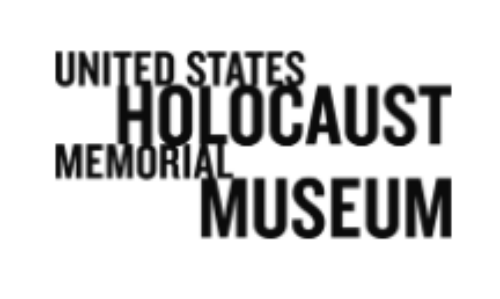Other sources
Here we present other sources that contain testimonies of Roma and Sinti from the Czech Republic and Slovakia, but are not included in the database. This is mostly because these are audio-visual testimonies rather than printed testimonies, which are the focus of the database. Although we do not include these testimonies in the database (see About the Database), we would like to draw the attention of web users to these other sources of testimonies as well. In most cases, these are testimonies of Roma and Sinti which have also been processed in printed form. Therefore, in addition to information about the sources, we also list the names of all the survivors whose testimonies appear in them. This section is still in preparation. We will gradually introduce more and more sources.
LETY. Documentary film
Produced by Romea, o.p.s.
František Bikár, Viola Tokárová, Renata Berkyová, 59 min
Three Roma film-makers depict the efforts of many protagonists to remove a pig farm from the site of the former so-called gypsy camp in Lety u Písku, as well as the ongoing public debate about the history of the site. The main focus is on the testimonies of several survivors and descendants of the persecuted Roma, compiled from the archieves of ROMEA TV and Czech Television, supplemented by events recorded over the past two years. An integral part of the documentary are interviews with those involved in the efforts to remove the pig farm since the Velvet Revolution. The film's chief protagonist is the Roma activist Čeněk Růžička, who has dedicated much of his life to the fight to remove the pig farm. His mother, who lost her first-born daughter in Lety, was imprisoned in the camp.
The film received a special award from the artistic director of the Ake Dike International Roma Film Festival.
Interviews as part of the Memory of Roma project, Czech Republic
Video interviews with Romani survivors living in the Czech Republic at the time of the recording.
The interviews are based on periods in the lives of the survivors and their memories of the historical periods or events. A frequent topic of the interviews is World War II as related to the persecution and victimisation of Roma in Slovakia and the Czech Republic, as well as the consequences of this persecution in the post-war period. Survivors from the communities of Slovak Roma, Czech Roma and Sinti, as well as the Olah Roma community, talk about their experiences in socialist Czechoslovakia, including the 1958 ban on nomadism, migration to Bohemia, and involvement in the Roma emancipation movement in the early 1970s. The post-1989 period and the 1990s are also covered.
The interviews have been recorded continually since 2016, with a total of 43 interviews stored and made available on the website by 2023.
The interviews are all conducted according to a uniform pattern. First, the survivor tells their life story in relation to those moments in their life to which they attach importance. They are then asked follow-up questions on topics that they have either already mentioned or that might be relevant to them. The recollections are recorded in a setting that is natural to the survivors.
The total length of the recordings varies between two and three hours, depending on the narrator, but only an edited version is published on the website. The full recordings are stored in the Romea TV archive. The passages are selected for publication in such a way as to preserve a variety of themes and points of view on the events or topics in question.
Each recording is accompanied by brief information about the survivor and the recording itself, and is accompanied by a transcript.
The creative team is made up of Romani scholars and Romea TV staff.
Interview archive at pametromu.cz.
Interviews housed in the archives of the Holocaust Museum in Washington D.C., USA. Czech Roma Documentation Project
A total of 22 interviews with Czech and Moravian Roma and Sinti are hProject, supported by a grant from Jeff and Toby Herr. The project leader was Nathan Beyrak.oused in the Oral History Department of the United States Holocaust Memorial Museum in Washington, D.C., most of which are also available online. The interviews, focusing on the wartime period of persecution and imprisonment in concentration camps, were recorded in the late 1990s as part of the Czech Roma Documentation
The interviews were recorded in Czech on videotapes and subsequently digitized. In addition to the video interview, a transcript of the recording (in Czech) and a translation of the transcript (in English) are also available.
Interviews available online: Antonín Vinter, Emilie Danielová, Jan Holomek, Marie Kryštofová, Ladislav Stockinger, Karel Vrba, Marie Sendreová, Geisa Olah, Antonie Kroková, František Daniel, Sebastian Daniel, Božena Růžičková, Marie Ondrášová, Antonín Hlaváček, Markéta Holomková, Marie Procházková, Rudolf Daniel, Antonín Daniel. Interviews accessible in the museum archive: Irma Valdová, Alžběta Lagronová, Anna Růžičková, Jana Marhoulová.
There are in the museum's archive also more than twenty other interviews with Roma survivors from Slovakia. These interviews are listed only under the first name of the interviewees.
Archive of interviews: https://collections.ushmm.org/...





